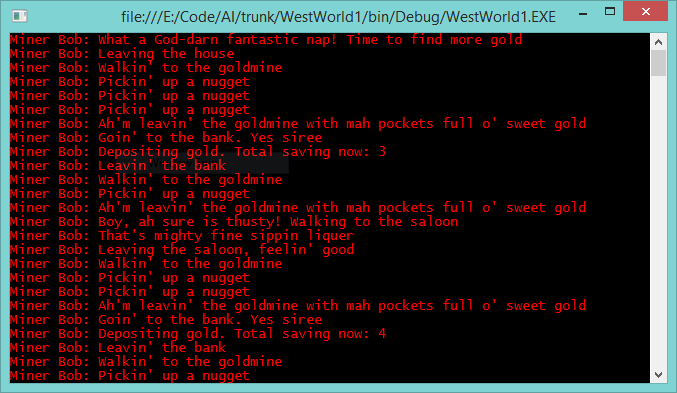What I particularly like about this book though, is that while it is presented as a book for programming game AI, it may be the best practical explanation of a number of fundamental AI techniques and patterns that I have seen. The lessons that I learned reading through this book have been just as applicable in my day-job as an enterprise developer as in my hobby work programming games, much more so than what I learned toiling through a semester-long AI course based on Artificial Intelligence: A Modern Approach...
The first real chapter of Mr. Buckland's book (leaving aside the obligatory math primer chapter), is devoted to finite state machines. Finite State Machines are one of the simpler ways of organizing decision making, and are probably one of the most intuitive. I'll let Mr. Buckland's definition stand by itself:
[quote]
A finite state machine is a device, or a model of a device, which has a finite number of states it can be in at any given time and can operate on input to either make transitions from one state to another or to cause an output or action to take place. A finite state machine can only be in one state at any moment in time.
Matt Buckland Programming Game AI By Example, p.44
[/quote]
I've been working on porting the first example from Mr. Buckland's FSM chapter from C++ to C#, featuring a mildly alcoholic, spaghetti Western gold miner named Bob. I'm going to focus mostly on the FSM-specific code here, but you can get the full code from https://github.com/ericrrichards/ai/tree/master/trunk/WestWorld1.

Read more...